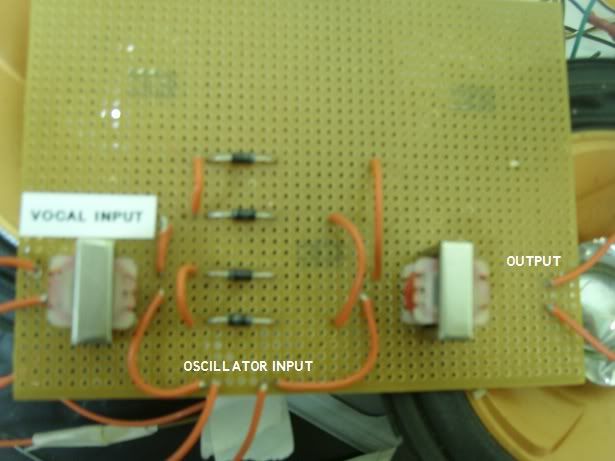WayneVenomous
New Member
I'm planning to build an "Ironside" Dalek as seen in the recent Doctor Who episode "Victory Of The Daleks". This is going to be on a very tight budget and after searching through different Dalek voice generators, including the Mooger Frooger system, I thought I'd build my own.
There's various schematics around the web including some very complicated systems, but I thought I'd try the simple "2 transformers 4 diodes" systems which is probably what the BBC Radiophonics workshop used originally anyway:

Here's a video I've done explaining the set-up and doing a quick test:
YouTube - Dalek voice ring modulator
After a bit of tweaking and a bit more research, I found the frequencies for the various Dalek stories on the Project Dalek Forum. So here's me trying out the various frequencies:
YouTube - Dalek voice modulator frequency test
Have to say, my favorite setting so far is the 14.5 Hz from Destiny of the Daleks.
There's various schematics around the web including some very complicated systems, but I thought I'd try the simple "2 transformers 4 diodes" systems which is probably what the BBC Radiophonics workshop used originally anyway:

Here's a video I've done explaining the set-up and doing a quick test:
YouTube - Dalek voice ring modulator
After a bit of tweaking and a bit more research, I found the frequencies for the various Dalek stories on the Project Dalek Forum. So here's me trying out the various frequencies:
YouTube - Dalek voice modulator frequency test
Have to say, my favorite setting so far is the 14.5 Hz from Destiny of the Daleks.

